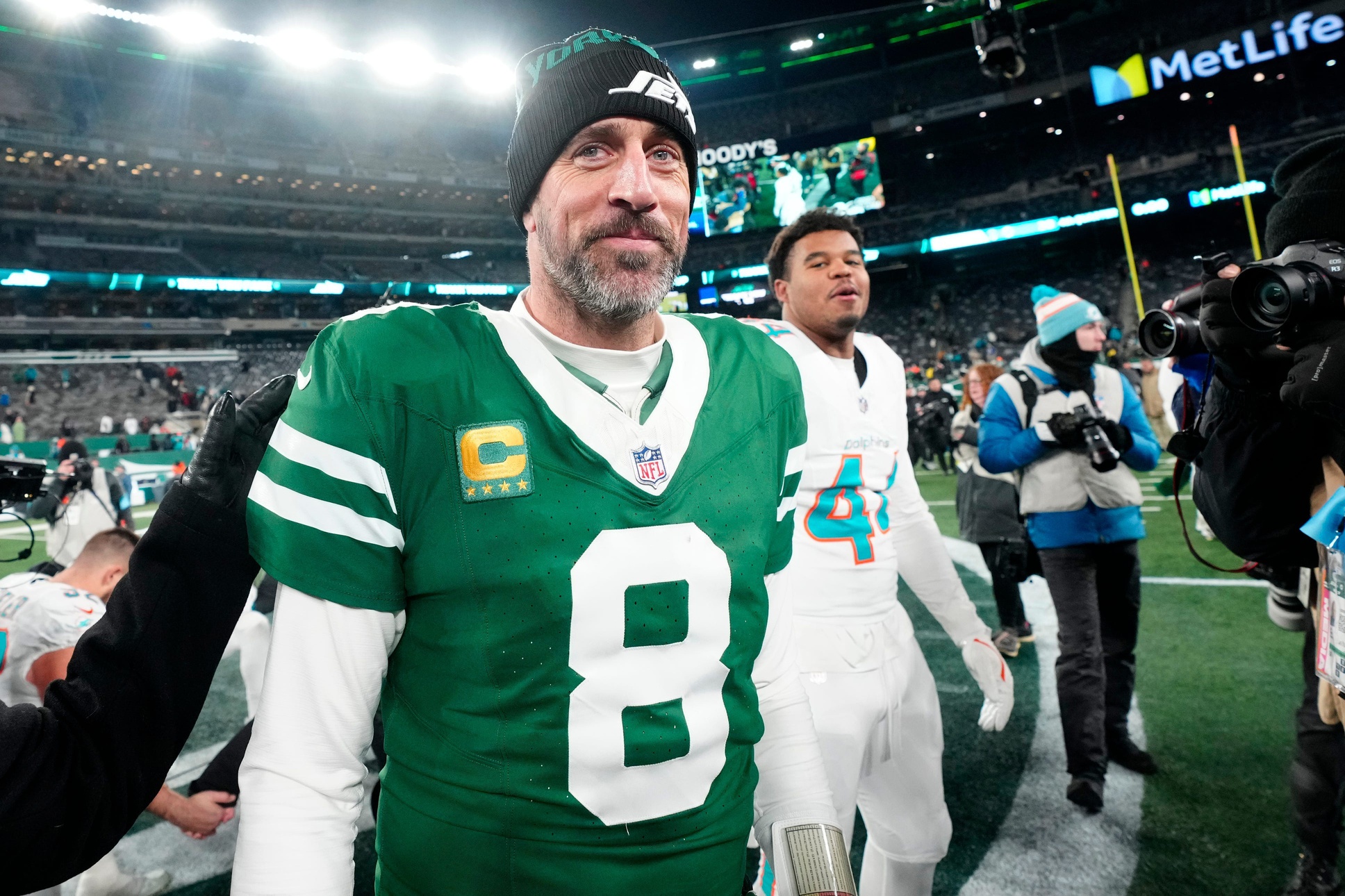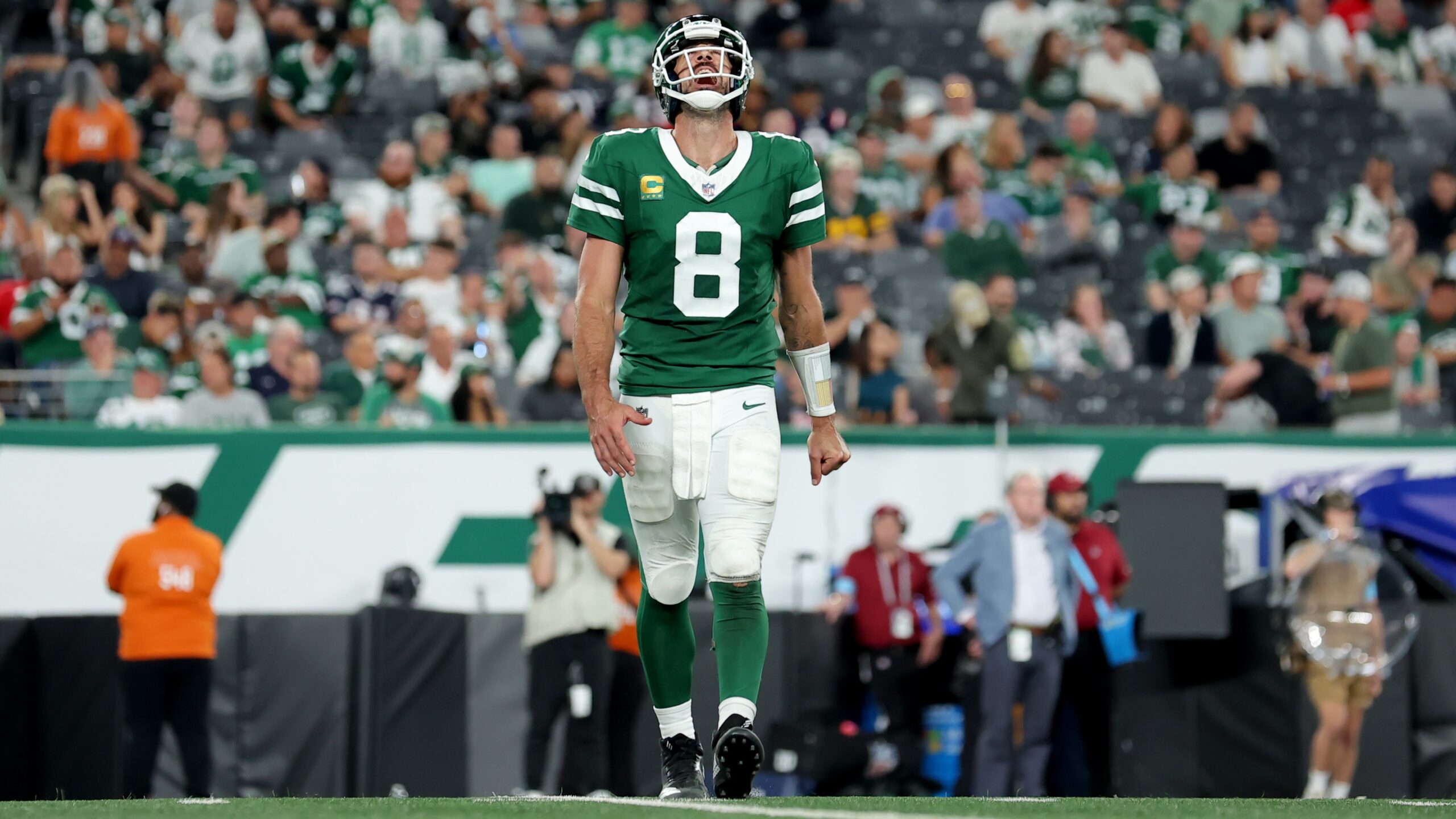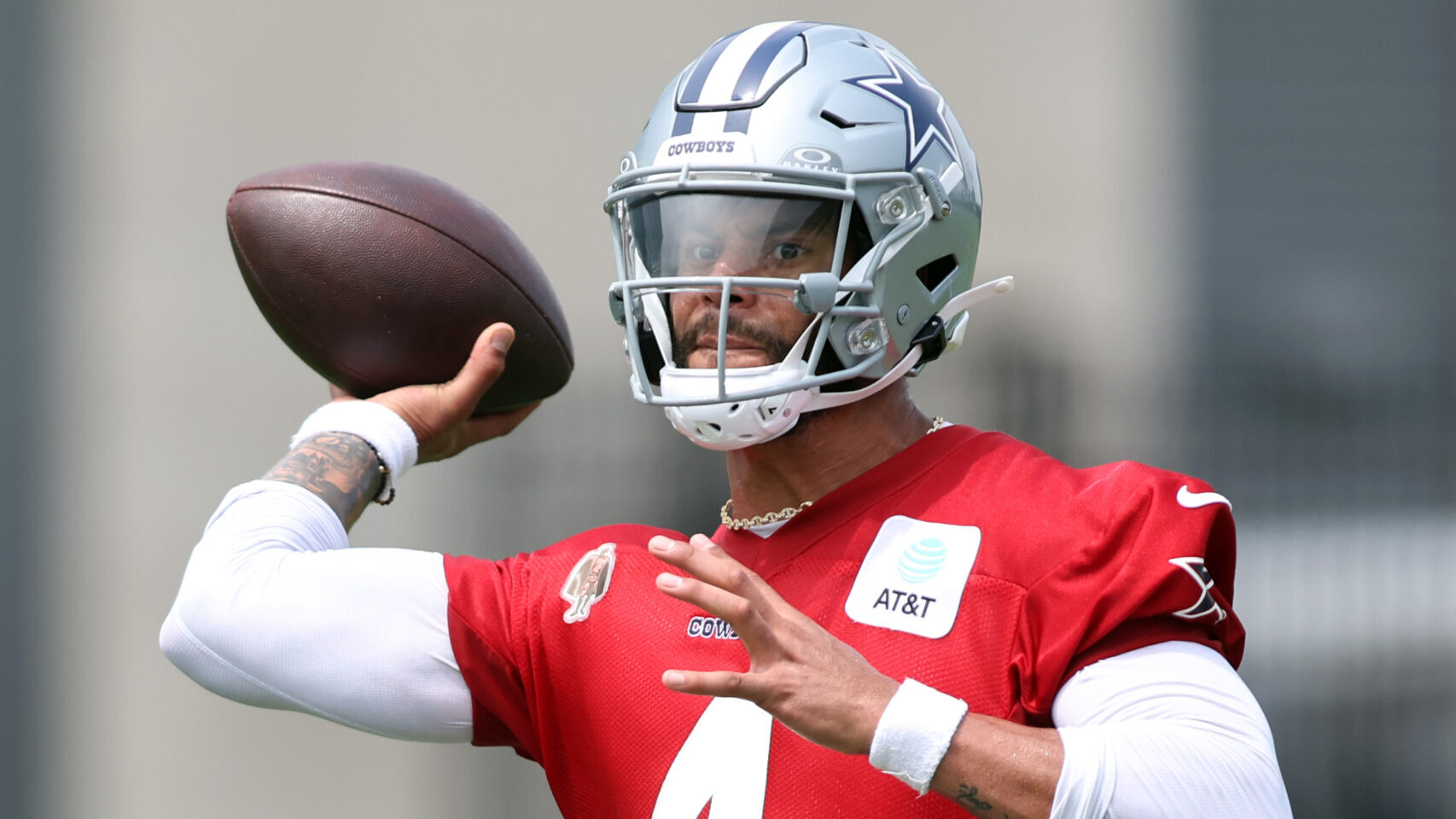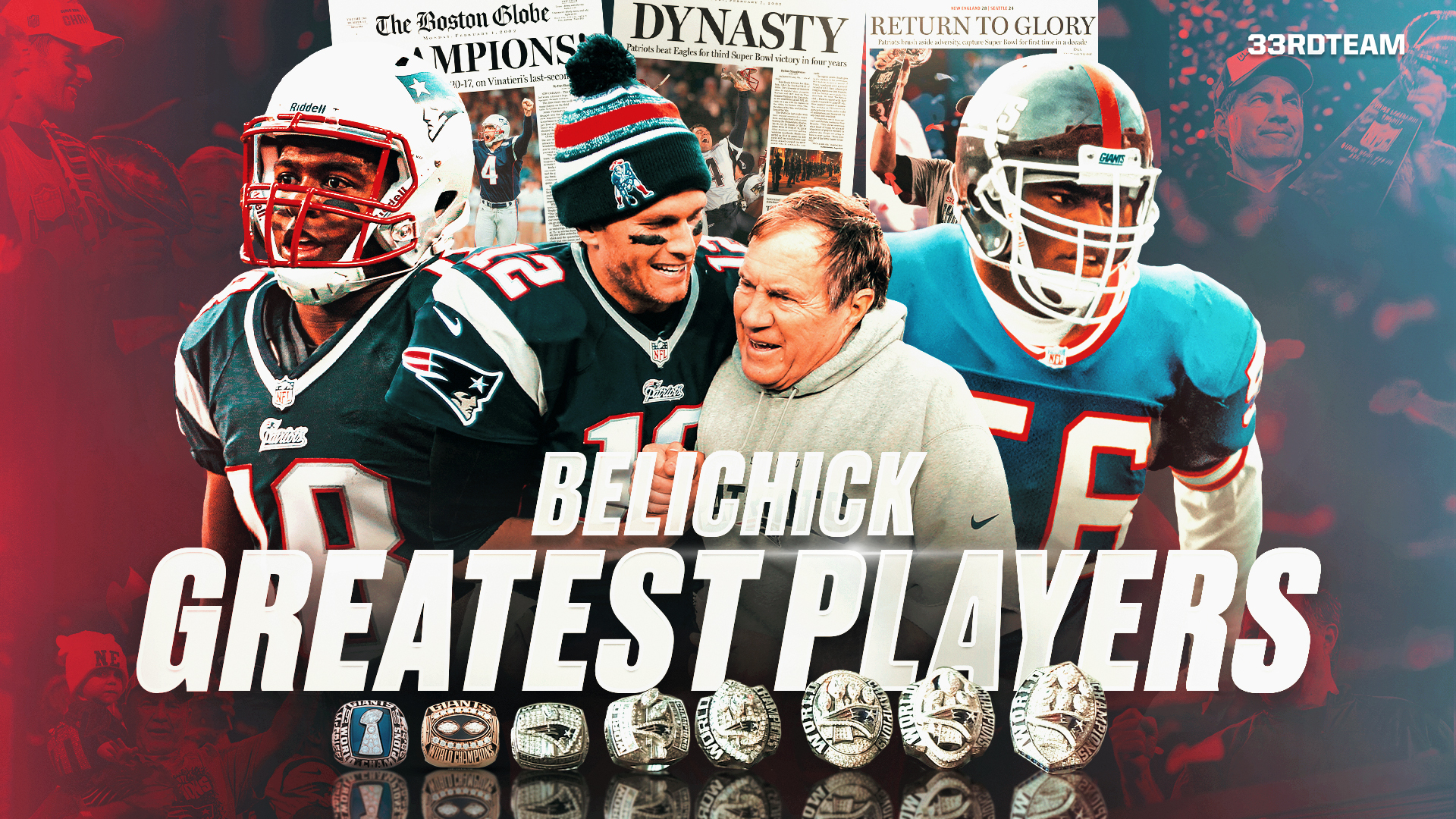Analysis
11/22/22
11 min read
Quick Slants: First-Year Head Coaches on Hot Seat
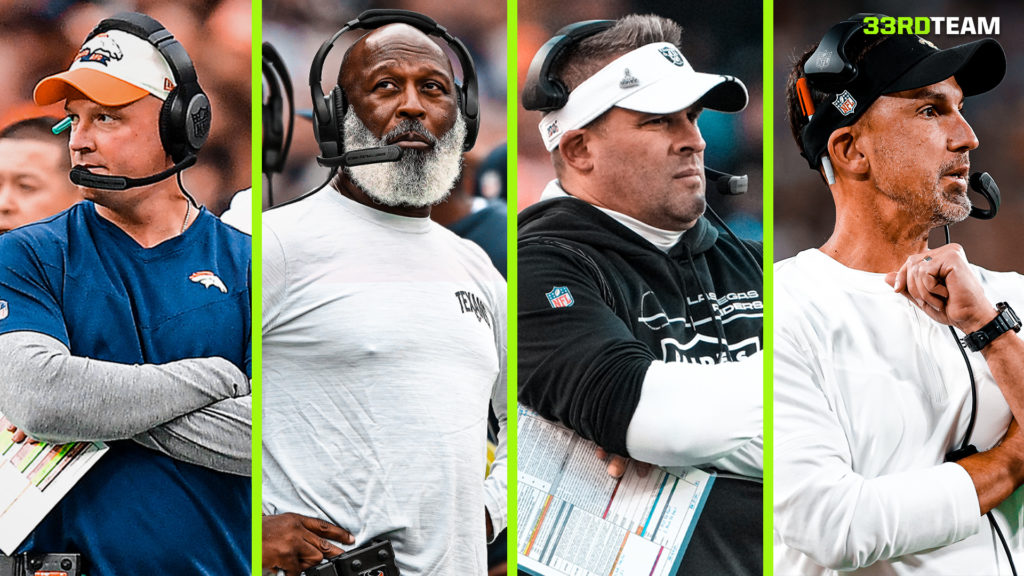
In Quick Slants, former NFL team executive Joe Banner provides a unique perspective each week on the NFL, its players and coaches. This week, he takes on multiple topics, including:
>> The imbalance of power between the AFC and NFC
>> The Colts' unimaginative offensive play-calling
>> Why teams shouldn't use the run as a primary function of their offense
But first, a look at struggling first-year head coaches and a temperature gauge on the current seat their sitting on …
It might be surprising to some people that in the past four years, there have been four head coaches fired after just one season. The number of one-and-done coaches increases to eight in the last 10 years.
And it could very well grow even larger this offseason.
One and Done
| Year | Coach | Team | Record |
| 2021 | David Culley | Texans | 4-13 |
| 2021 | Urban Meyer | Jaguars | 2-11 |
| 2019 | Freddie Kitchens | Browns | 6-10 |
| 2018 | Steve Wilks | Cardinals | 3-13 |
| 2016 | Chip Kelly | 49ers | 2-14 |
| 2015 | Jim Tomsula | 49ers | 5-11 |
| 2013 | Rob Chudzinski | Browns | 4-12 |
| 2012 | Mike Mularkey | Jaguars | 2-14 |
| 2011 | Hue Jackson | Raiders | 8-8 |
| 2009 | Jim Mora | Seahawks | 5-11 |
| 2007 | Cam Cameron | Dolphins | 1-15 |
| 2006 | Art Shell | Raiders | 2-14 |
| 2001 | Marty Schottenheimer | Redskins | 8-8 |
| 2000 | Al Groh | Jets | 9-7 |
| 1999 | Ray Rhodes | Packers | 8-8 |
| 1997 | Joe Bugel | Raiders | 4-12 |
| 1994 | Pete Carroll | Jets | 6-10 |
There were 10 new head-coaching hires made in the offseason, and four are in jeopardy of joining the list. I'm not predicting any of them will be fired, but there is no doubt they are on the hot seat.
Nathaniel Hackett, Broncos (3-7, tied for last in AFC West)
Hackett has had one of the more difficult first-year transitions to head coach that we've ever seen. The most important things a head coach does is lead, hire and manage his staff, and have his team well-prepared for any game situation. It appears from the outside as if he’s failed at all of those primary responsibilities. The defense is playing well but he inherited an extremely talented group on that side of the ball. On game days, the entire team doesn't appear as organized or prepared as the Broncos' opponent. Hackett is no longer running the offense; last week, he turned the play-calling duties over to quarterbacks coach Klint Kubiak, who moved up to the coaches booth in Denver's OT loss to the Raiders in which the Broncos scored just 16 points. A first-year firing of Hackett would not be shocking.
Dennis Allen, Saints (4-7, third place in NFC South)
Allen basically inherited a team from Sean Payton that was very close to making the playoffs last season. They then overpaid to trade up in the draft to get one of the best receivers (Ohio State's Chris Olave), spent big money on safety Tyrann Mathieu, and got back wideout Michael Thomas, who spent the entire 2021 season recovering from ankle surgery. All of the Saints' actions made it seem as if they were ready to compete with the best in the league with an improved roster. Yet, both the offense and defense have played poorly most of the time. Pair this with Allen's poor track record from his tenure in Oakland (8-28 in two-plus season) and it starts to look bleak for his return to New Orleans in 2023. And even if he is retained, the team's outlook is poor. The Saints are without a 2023 first-round pick (the Eagles own New Orleans' potential top-10 pick), as well as a long-term quarterback option on the roster. They also are projected to have the least amount of cap room in the NFL for the second consecutive offseason, limiting what they can do in free agency.
Lovie Smith, Texans (1-8-1, last place in AFC South)
The Texans are actually playing a little bit better than their record. Smith clearly has the team working and playing hard. On the other hand, Houston's front office has had at least two years to develop a competitive roster and quarterback, and have made virtually no progress in either area to be optimistic going forward. History says someone is at risk to take the hit, and although I think it would be unfair, the Texans' current league-worst 1-8-1 record might not be enough to save Smith's job. Remember, 4-13 wasn't enough to save first-year coach David Culley's a year ago with the same ownership group.
Josh McDaniels, Raiders (3-7, tied for last in AFC West)
In spite of getting off to a surprisingly bad start with a team that entered the season with high expectations, McDaniels is probably the least likely to get fired from this group. He took over a team that played extremely well at the end of last season to make the playoffs, but it is underperforming to this point. He also got the job over Rich Bisaccia, whom any felt deserved the opportunity to lead this team after taking the job last year on an interim basis after Jon Gruden resigned. If the season ended today, the Raiders would have the second overall pick – not exactly what they were expecting after trading for and paying Davante Adams as well as a number of other players. There are plenty of coaches who are good coordinators or position coaches but can't figure out how to lead a team as the head guy. Maybe McDaniels is one of them.
[bc_video video_id="6316029185112" account_id="6312875271001" player_id="default" embed="in-page" padding_top="56%" autoplay="" min_width="0px" playsinline="playsinline" picture_in_picture="" language_detection="" max_width="640px" mute="" width="100%" height="100%" aspect_ratio="16:9" sizing="responsive" ]
AFC-NFC Imbalance of Power
Coming into the 2022 season, we thought there was a big difference between the NFC and AFC. The first 11 weeks of the season has confirmed our expectations. When you look at the landscape right now, there are 6-7 really good teams in the AFC that a real chance to make it to the Super Bowl: Kansas City, Buffalo, Miami, Cincinnati, L.A. Chargers, Tennessee, Baltimore.
On the other hand, there are really only two teams in the NFC that you’d think are competing for the right to play in the Super Bowl, and they just happen to come from the same division: Philadelphia and Dallas. These teams are not without their faults either. Philadelphia has been shaky the past three weeks against bad opponents and are struggling defensively to stop teams.
Dallas, on the other hand, is starting to find its groove. The Cowboys' defense is one of the best in the league, but the offense has been inconsistent, even considering the 40 points they hung on the Vikings on Sunday. Dropping the Week 10 game in Green Bay, in which they lost a 14-point lead in the fourth quarter, could prove costly at the end of the season in the race for the NFC East.
Sure, the 49ers could turn things around and be more consistent on the offensive side of the ball, but until they prove that I do not consider them a contender, even after their dominant performance in Mexico City on Monday night. I wouldn’t shock me if they came out of the NFC this season, considering they have a quality roster and a really bright offensive-minded head coach in Kyle Shanahan, but they need to prove it first. Similarly, I don’t believe the Vikings are for real. Each of their seven wins before the beatdown they took against Dallas – including games against sub-.500 teams in the Lions, Saints, Bears and Cardinals – were by just one score.
And the Rams and Buccaneers, who were expected to compete for the NFC, have been nothing less than disappointing.
While there are a few good teams in the NFC we can’t dismiss, the depth and strength of the AFC teams far outmatches their conference counterparts. The league's top three offenses — in terms of total points scored, yards, yards per play, yards passing, and yards per pass attempt — all come from the AFC. And most of these AFC powerhouses have a young, electrifying quarterback who can lead their team to victory in nearly every situation. Additionally, they each have tremendous coaching staffs, headlined by Andy Reid, Sean McDermott, Mike Vrabel and John Harbaugh.
[bc_video video_id="6315984238112" account_id="6312875271001" player_id="default" embed="in-page" padding_top="56%" autoplay="" min_width="0px" playsinline="playsinline" picture_in_picture="" language_detection="" max_width="640px" mute="" width="100%" height="100%" aspect_ratio="16:9" sizing="responsive" ]
The same can't be said of their NFC counterparts. The Eagles fall into the category of a team that has a young, developing quarterback, but their coaching staff is still somewhat unproven. The Cowboys similarly have a really good quarterback, but their head coach lost them the game in Green Bay with some of his decisions. Both the Vikings and 49ers have average to above-average veteran quarterbacks and good offensive minds at head coach. None of these teams — other than maybe Philadelphia — check both of the boxes that at least four AFC teams do.
Sticking to an Unimaginative Plan
We’ve been hearing for years that when a team runs well, it needs to stick with what's working. But nobody has ever literally stuck with it from the first snap to the last the way the Indianapolis Colts did on Sunday in their loss to Philadelphia.
The Colts had a solid first drive when the Eagles were in nickel and weren’t expecting them to run the ball on 8 of 10 plays. After that drive, Indianapolis changed nothing the remainder of the game, essentially playing a 4-minute drill, prevent-styled offense and hoping the defense would win it.
Having success on first down is one of the most important things an offense can do in the NFL. Yet from the start of the second quarter until the final whistle, the Colts ran the ball on 12 of their 18 first-down plays for a total of 11 yards (0.9 yards per attempt). It actually got worse in the second half when they ran the ball on 10 of 12 first-down plays for a total of 7 yards (0.7 average).
It would be easy to place the blame on play-caller Parks Frazier, the 30-year-old who was elevated from assistant quarterbacks coach to offensive coordinator by interim coach Jeff Saturday two weeks ago. But you'd have to be pretty naïve to think Frazier is calling the plays on his own. Saturday has changed things up a bit on offense, mostly by degree, from what Frank Reich was running before he got fired. Like Saturday, Reich also really believed in running the ball more often than most NFL play-callers do today, but not anywhere close to what the Colts ran on Sunday.
It's very difficult for an offense to succeed when you constantly put it in second- and third-and-long situations. I understand Matt Ryan was playing poorly, but you are not helping by leaving him in those types of situations on every single possession by running that much and at such an ineffective rate.
Running With Purpose
With so many people still arguing teams should run more if they want to win, Tony Romo actually gave the correct answer to this question during his CBS broadcast of the Cowboys-Vikings game in Minneapolis.
“It’s not important how much you run. It’s important that when you do run, you do it well,” Romo said. And the numbers say he is correct.
The notion that teams need to establish the run early in order to play-action pass is partially correct. However, teams should not be running the ball as their primary form of offense. They should be running it in order to set up play-action, which historically produces a higher average yards-per-pass attempt – a metric that is a winning formula for success.
That is why the play-action passing game is so effective, even for teams like Kansas City and Buffalo that throw at such a high percentage. When they run, they generally run well, which helps their offensive line and allows them to be so effective with play-action.
WATCH MORE: Why Chiefs Are Never Out of a Game
[bc_video video_id="6315979327112" account_id="6312875271001" player_id="default" embed="in-page" padding_top="56%" autoplay="" min_width="0px" playsinline="playsinline" picture_in_picture="" language_detection="" max_width="640px" mute="" width="100%" height="100%" aspect_ratio="16:9" sizing="responsive" ]


